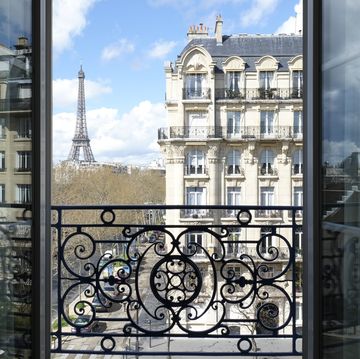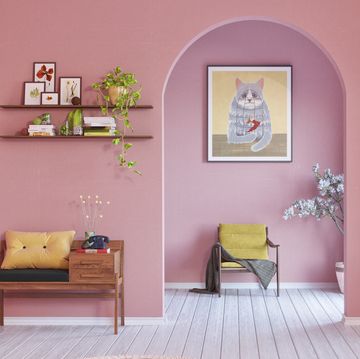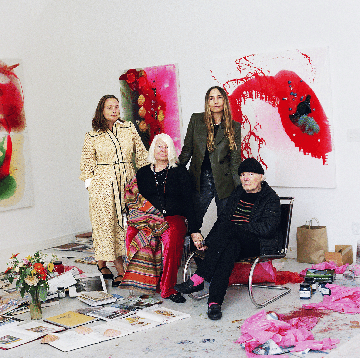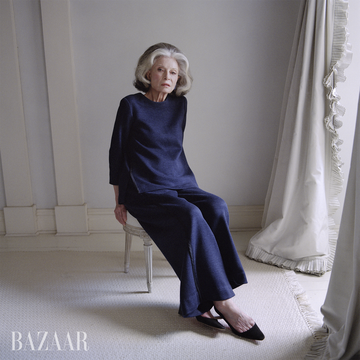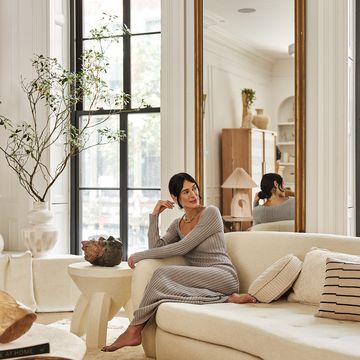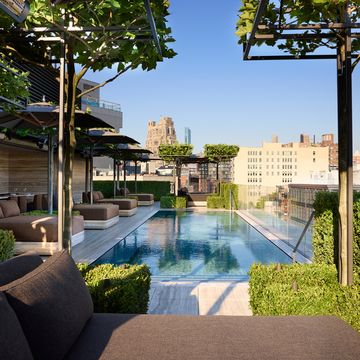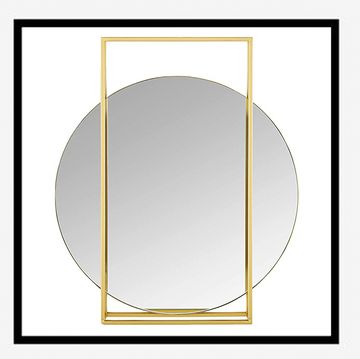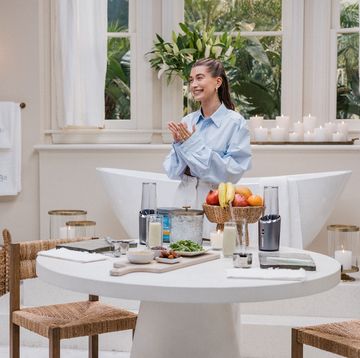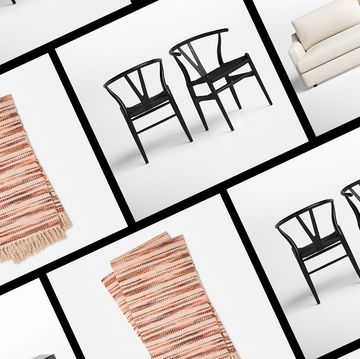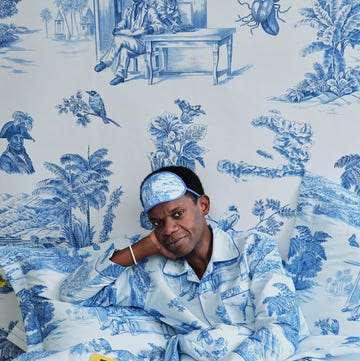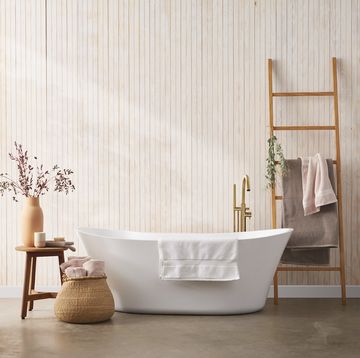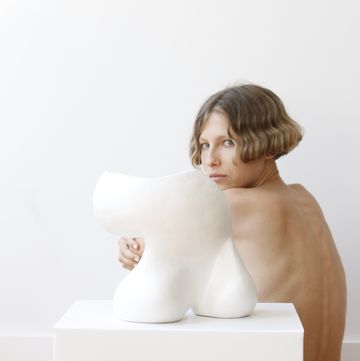If you're in search of a Getty, it's best to first look up, find the highest peak, and start from there. The Los Angeles art museum that bears the family name is perched at the top of a hill with sweeping views of the city's downtown. The home that actor Balthazar Getty, a great-grandson of the oil tycoon and famed arts patron J. Paul Getty, whose family trust built the museum, has shared with his designer wife, Rosetta, and their four children since the couple married 10 years ago is on an equally lofty plot on the other side of town, just a few miles north of Hollywood Boulevard. Acrophobia is clearly not in the gene pool.
A bit of notoriety, however, is. J. Paul Getty was married five times; J. Paul II lived a glamorously louche life with wife Talitha; and Balthazar's father, J. Paul Getty III, was famously kidnapped as a teenager in Italy. Balthazar caused a stir of his own by having a brief, well-publicized affair with actress Sienna Miller in 2008. At the time, it led to a separation from Rosetta, but today the family is happily back on track.
"Here's the bottom line: It was a very challenging time for everybody involved," says Balthazar, 35, sitting on a couch next to his wife, "but I loved and missed my family too much not to make it work. Rosetta is understanding enough and spiritual enough to let us try. In a way it — I don't know ... I feel like we're better than we've ever been."
For her part, Rosetta, 40, an earthy, dark-haired beauty, has a very charitable outlook on the whole ordeal. "I'm open to talking about it because I believe we go through things in a public way to help other people get through it. I'd love to talk about it more with people when I'm clearer about it," she says. "I'm going to have to explain this to my daughters one day. I chose not to act from ego because I just felt like it would be too crushing for my children."
Balthazar adds, "You can do two things in life when an obstacle comes your way: You can tackle it, or you can allow it to break you down."
At that moment, such an open dialogue seems like the only kind possible, given the chasm the two have overcome. The reconciled pair sit contentedly in the airy, bright space they've chosen to be their home, their emotional bravura dovetailing with their intimate surroundings.
"I'd always lived in old, dark, Spanish-style houses," says Rosetta, who looks tiny and fit despite having had four children within seven years. The eldest is son Cassius, 10, followed by daughters Grace, eight, Violet, seven, and June Catherine, two. "When we bought this house, I was looking for light."
Though their '50s-modern single-level home is modest in size (by this town's standards at least), the scenery out of each of its windows — a near-360-degree landscape of Los Angeles County — is dazzling. On their deck, they've been known to host some of the chicest dinner parties in town. Regular guests include a mix of musicians, artists, actors, and, yes, often famous friends they've collected since childhood, namely the Arquettes (Patricia is Rosetta's childhood best friend, and her brother David and his wife, Courteney Cox, are also frequent visitors), Cassius's godfather, actor Eric Dane, and fans of Rosetta's three-year-old clothing line, Riser Goodwyn, like Eva Mendes. But what's going on inside the house, a white boxlike structure that's been lovingly transformed into a very cool and comfortable family home, is what makes this place special.
"This is all Rosie," says Balthazar, wearing a black T-shirt and jeans, clearly admiring his wife's efforts as he offers a tour of the property. "The design, the fabrics, the vegetable gardens. It's all her."
The handsome and well-worn modern furniture, mostly elegantly aged and cracking black leather pieces from midcentury designers like Illum Wikkelsø and Charles and Ray Eames, shares space with handmade textiles and richly detailed carpets chosen with the help of designer and decorator Cliff Fong. On the walls is a growing contemporary-art collection, mostly pieces chosen on gut instinct by Rosetta from primarily California-based artists, such as an abstract sculpture from Anna Sew Hoy and a series of photographs by Karin Apollonia Müller. Meanwhile, the Gettys' daughters have made their own contribution: drawings on walls covered with several coats of chalkboard paint. "It's all very kid friendly," says Rosetta. "The pieces are large, nothing delicate. And all of my furniture is dark, so it won't get destroyed."
The Swiss chard and green onions in their little fenced-off plots outside have taken a beating of late, since they were largely unattended as the family spent the last five weeks at the Getty family's favorite vacation spot in Tuscany. "For the last 50 or so years, my entire extended family has spent the summer in this little town in Italy," says Balthazar, as if it's the most natural thing in the world to have not just a family compound but an entire hillside village. "It's kind of rugged there, stony and hot, with beautiful rivers for the kids to swim in, and we love it. All of my cousins are there. We'll have breakfast at my grandmother's place, a snack and a swim at our house, and then maybe dinner at an uncle's. It's a big, long summer party. It's incredible, really."
The six Gettys have come back to the States for Cassius's 10th birthday, which he insisted he spend at home, followed by a rare two-day parents-only jaunt to Hawaii before they all return to Italy for the remainder of the summer.
"I'm filming an episode of Hawaii Five-0 with my good friend Scotty Caan, which is why we're going. And Rosetta is coming along," explains Balthazar, who has been best known for the last four years as the ill-behaved Tommy Walker on the ABC drama Brothers &Sisters, a role that ended last season.
It would be misleading to call their family life and the four younger Gettys' childhoods conventional, but it's a lot more staid than either of their parents' early years. Balthazar's father, J. Paul III, split from his mother, Gisela, a German-born photographer, when he was a boy. "I wouldn't say I had an easy childhood, but I always felt loved. My mom didn't pressure me to win. I didn't need to be the best at anything," he says. "Our culture is so focused on competition right now: who's the best singer or the best designer. That's not something we want to enforce in this house."
Rosetta's life was even less traditional. "I was raised in sort of a commune," Rosetta starts in her slow, thoughtful way. "An extended spiritual family they called a brotherhood. We were all named by the same guru. I'm not going to say the word cult, but ..." she trails off and starts laughing. "My parents were full-on hippies in the '70s. I was raised by artists, and there weren't any boundaries."
When she was 12, Rosetta was asked to leave her middle school after she shaved her head into a mohawk. She and her friends had been traveling in Europe, where they fell hard for the punk-rock scene. By the time she was 15, she was modeling full time. And by 21, when most young women are just embarking on their lives, she was ready to settle back in Los Angeles. She started her children's-clothing label, the then eponymous Rosetta Millington Kids collection of "ethereal, princessy" dresses, which she has since shuttered.
"I just burnt out on that life," she says. "Six years of modeling was enough. And I'd been making clothes since I was seven, so I knew that designing was in me. It's just what I do. I'm a very spiritual person, and I believe that my whole life has been about taking bad experiences and turning them into beautiful things."
Four kids, two black pugs named Ajax and Daisy, and a couple of careers means infinite chaos at home for the family, especially since Riser Goodwyn, a collection of dramatic and architectural pieces Rosetta makes largely for private clients (save for one retail outlet, Church in West Hollywood), is run from the guesthouse out back. "I chose this," admits Rosetta. "I love my kids and I love my work. I'm so grateful to have this. It's a big life and it's exhausting, but I wouldn't trade it."
To make things work, Balthazar and Rosetta rely on a household division of labor that's fairly conventional, at least for a family with two artists in charge. He does a good portion of the cooking and will put the kids to bed at night. Meanwhile, she's on mornings: breakfast and school detail.
"I'm not so good with early, so that's Rosetta's thing," he says. "She's up and gets them where they need to go, but I'm usually the last person they see at night before they go to sleep."
Such a balance is what makes things tick, they've learned. "We'll always have to love each other through our ups and downs," says Rosetta. "We have to support each other."
But who takes on the lion's share of all of this domestic bliss, really?
"Who wears the pants?" asks Rosetta with a sly smile. "I think we all know who really wears the pants in any family. And we can leave it at that."


